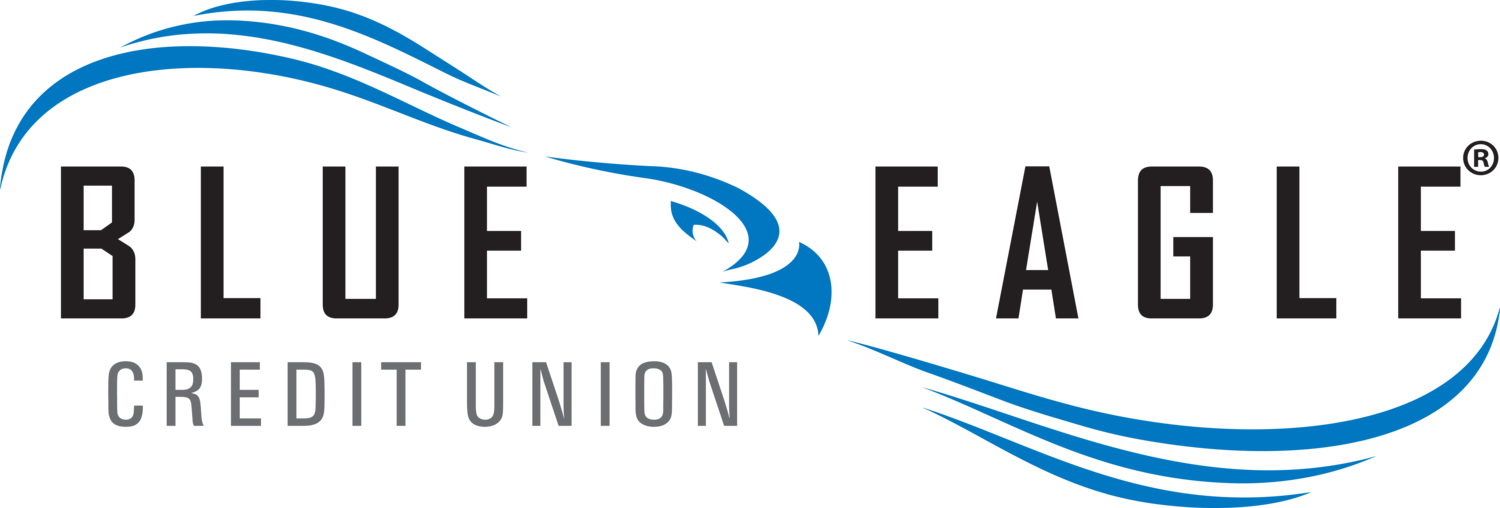
Security so you can rest easy.
We are constantly evolving our security measures to protect you and your family.
Don’t fall victim to text scams
We've gotten several reports of members and non-members receiving unexpected fraudulent texts about their Blue Eagle Credit Union account, claiming there is a hold due to a withdrawal on their account. In the message, the fraudsters direct the recipient to click a link to resolve the problem.
We will only send secure links via text after talking to you first and as a part of your application process you initiated.
If you receive a call or text from us you're not expecting and you're unsure of its legitimacy, you can help keep yourself safe by ending the communication and reaching out to us directly via call or text at 540.342.3429. You can also verify by sending a secure message in MyCU Digital Banking.
Blue Eagle Credit Union takes security very seriously. As one of our valued members, you can rest assured knowing that we are constantly evolving our systems, processes, and technology. We pride ourselves on keeping you and your money safe, so please let us know if any concerns arise.
In the meantime, take action! Find out what we do to protect you, and learn what steps you can take to be proactive. You know what they say — it’s better to be safe than sorry!
A few common scams
Phone spoofing: When a fraudster “spoofs” a legitimate phone number (like ours), and calls you with a problem to try to get you to give up personal information. Blue Eagle Credit Union will never ask for card details. Avoid falling victim to spoofers by hanging up and dialing the number yourself whenever you think an unexpected call by a trusted source may be illegitimate.
Text links: Similar to phone spoofing, scammers will send you a text with a link to log into a seemingly secure system like your bank account. We will never send you a text with a link to log into your MyCU account.
Brushing: If you get a package you’re not expecting and it has a QR code inside to find out who the gift is from, don’t scan it! This has become common, particularly during the holiday season, for scammers to get your personal info.
-
Stay Informed
Stay up to date with the latest trends in scams and internet security. Sign up for our monthly email newsletter where we keep you informed about the latest scam trends.
Know what it takes to keep your accounts secure. Read the ‘take action’ section for tips and tricks.
Know that offers that seem too good to be true likely are just that.
Know the ‘red flags’ of suspicious communications: typos, urgent requests, and “free” offers are among the top warning signs.
Be wary of anyone that asks you for an odd payment method: Gift cards, payment apps, wire transfers, etc.
Remember that no one should ever contact you and ask for personal information like card numbers, account numbers, usernames, or passwords. A legitimate organization will already have this information.
Never email personal information. Email messages are not secure. To send us secure messages, please do so through MyCU.
-
Take Action
Delete suspicious communications.
Utilize MyCU to monitor accounts, set alerts, and turn your debit card on/off if necessary.
Be vigilant when using ATMs. Check for card skimmers, cameras, evidence of tampering, etc.
When using P2P apps like Venmo® or Zelle®, verify the legitimacy of the individual or organization before sending money.
Update usernames and passwords often. Make passwords strong with a combination of uppercase and lowercase letters, numbers, and/or special characters.
Sign up for account verification whenever offered: security questions, unique login codes, and multi-factor authentication (MFA).
Notify us* of information changes: address, email address, phone number, name, etc.
Utilize fraud alerting services and yearly free credit reports offered by all three credit bureaus.
-
Tell Someone
Lost or stolen debit card? First log into MyCU and turn the card off, then call us at 540.342.3429. If it's during nonbusiness hours, call us at 800.472.3272.
Lost or stolen credit card? Call us at 540.342.3429. If it's during nonbusiness hours, please call 800.325.3678.
Victim of fraud or identity theft? Place a freeze on all three credit bureau accounts, then call us at 540.342.3429 as soon as possible so that we can begin taking the necessary steps to help protect your accounts.
Found a card skimmer or an ATM that has been tampered with? Contact the local police as soon as possible.
Contacted by a scammer? Call the local authorities and contact the legitimate organization.
(*Email is not a secure method of communication. Transmission of emails may result in a loss of confidentiality. Please do not include personal information such as account numbers and Social Security numbers in your email.)
